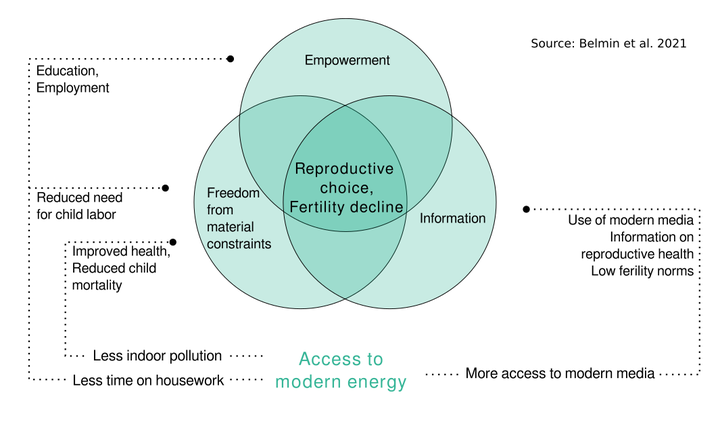Fertility transition powered by women’s access to electricity and modern cooking fuels, Belmin et al. 2021, Nature Sustainability
 Image credit: Belmin et al. 2021
Image credit: Belmin et al. 2021
Authors:
Camille Belmin; Roman Hoffmann; Peter-Paul Pichler; Helga Weisz
https://www.nature.com/articles/s41893-021-00830-3
Abstract:
Access to electricity and modern cooking fuels, especially for women, leads to time savings in the home, improved health and better access to information. These factors increase women’s well-being and enhance their ability to make reproductive choices, which is empirically expressed by falling birth rates. This study provides an international analysis of the relationship between access to modern energy and fertility, based on panel data synthesized from 155 Demographic and Health Surveys over 26 years. Controlling for other determinants, we find that access to electricity and modern cooking fuels, along with education, negatively affects fertility. Energy and education effects are complementary and strongest in regions with initially high fertility rates. Expanded access to modern energy and education would accelerate the demographic transition. Therefore, the energy demand and carbon emissions needed to achieve the Sustainable Development Goal of energy access while ensuring gender equality and climate action would be lower in the long term than currently assumed.
In the news:
- Press release of the Potsdam Institute for Cliamte Impact research
- Press release of the International Institute for Applied System Analysis
- Österreichischer Rundfunk: Mehr Bildung und weniger Geburten durch Gas und Elektrizität
- Deustchlandfunk Nova
- Bayerischer Rundfunk: Zugang zu Elektrizität als Schlüssel zu Bildung und Gesundheit